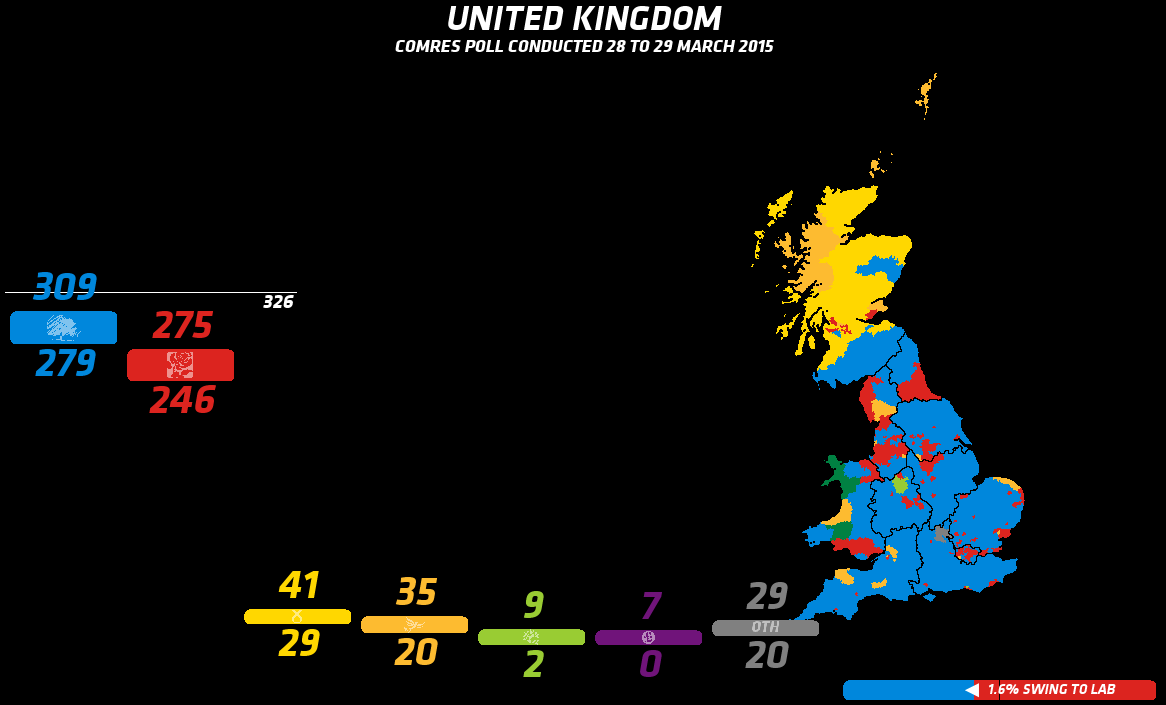We are now just over 150 days away from the next federal election, and the public opinion polls over the last week have shown the three major parties within just a couple of percentage points from each other when it comes to national support.
 |
| Weighted average of opinion polls over recent weeks appear to show a tight race |
However, when you translate this into seats in parliament, a substantial difference begins to emerge. The Liberals and NDP are close to each other, but the Conservatives are well ahead, though well short of being able to form another majority government.
 |
| Seat projection ranges based on recent opinion polls |
So how do we explain the discrepancy between the opinion polls and the seat projection?








